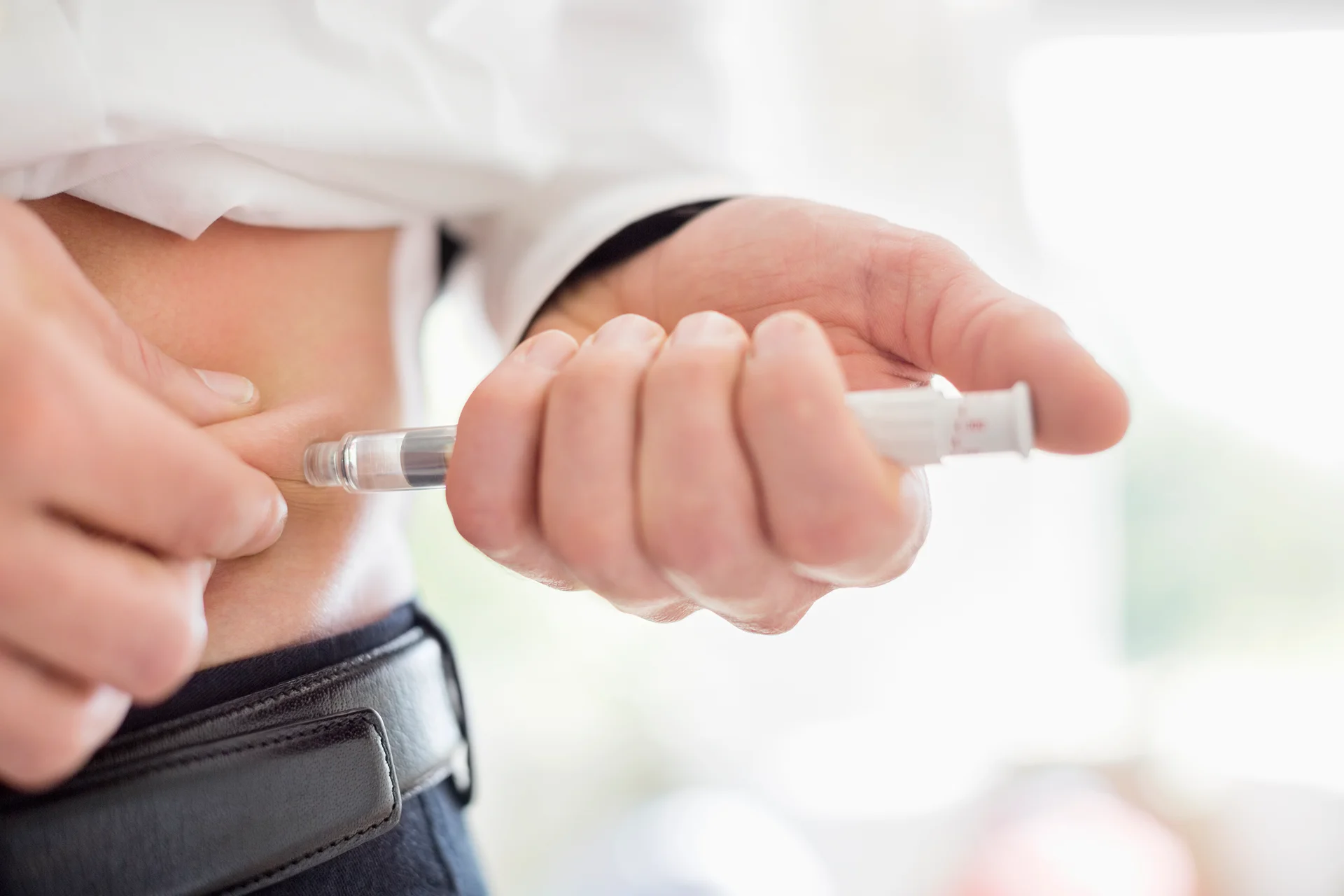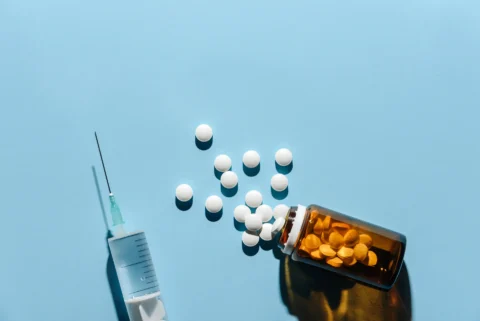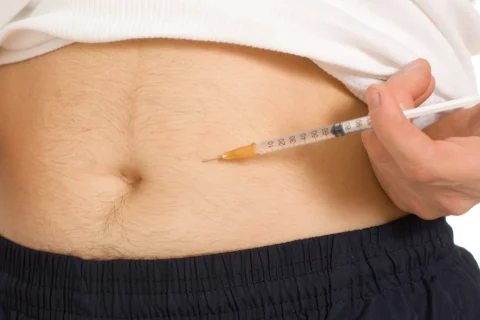What all men should know before attempting the risky hCG diet.
Are you a man considering the hCG diet for rapid weight loss? You may want to think twice. This controversial diet plan can provoke concerning side effects ranging from gynecomastia to depression.
Just how dangerous are potential risks like hormone changes, headaches, and fatigue for men on the hCG protocol? And when should you stop using if worrisome reactions occur? This article will uncover the safety issues to weigh before attempting the hCG diet.
What Are Some Common Side Effects of the hCG Diet for Men?
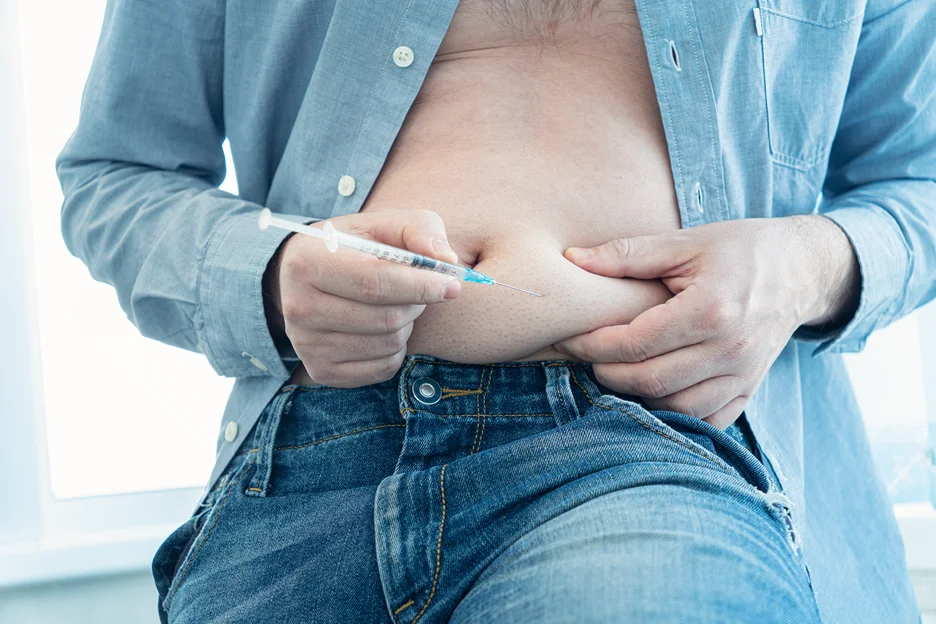
The hCG diet often causes side effects like gynecomastia, mood changes, headaches, fatigue, fluid retention, and rarely blood clots in men due to the very low-calorie intake and hormone changes.
Gynecomastia
Gynecomastia or enlarged breast tissue is a frequently reported side effect of the hCG diet. The unnatural fluctuations in hormones like testosterone and estrogen levels caused by hCG injections or supplements often lead to breast tissue growth in men.
Male patients undergoing the diet commonly develop tenderness or swelling in their breasts. This gynecomastia side effect makes us very hesitant to recommend the hCG diet protocol to male clients seeking weight loss.
Mental and Emotional Impact
In addition to physical side effects, we often see substantial mental and emotional effects in men on the hCG diet plan:
- Depression – Feelings of sadness, hopelessness, lack of motivation, and other depressive symptoms are very common while restricting calories severely. The mental strain and hormone changes can contribute to depression.
- Mood swings – Many men report frequent mood swings cycling between irritability, sadness, and anxiety. The calorie and nutrient deprivation paired with hCG use impacts mood regulation.
- Fatigue – With just 500-800 calories consumed daily, extreme fatigue from lack of energy is essentially inevitable. Weakness, low energy, and exhaustion make it difficult to function.
- Restlessness – Conversely, some also report restlessness along with fatigue. The paired symptoms may be partially due to electrolyte imbalances.
Fluid Retention and Other Physical Side Effects
- Edema – Swelling in the tissues and fluid retention (edema) frequently occurs as the body struggles to adapt to very low calories and nutritional deficiencies. This can particularly cause swollen legs.
- Headaches – Dehydration, low blood sugar, and electrolyte imbalances often provoke headaches. Tension headaches are also common.
- Other – Further potential physical side effects include nausea, vomiting, pain at injection sites, and increased blood clot risks in rare cases.
How Can Men Reduce Potential hCG Diet Side Effects?
- Gradually decrease calorie intake instead of abruptly slashing calories. This gives the body more time to adjust and avoids shocking the metabolism.
- Ensure the diet includes adequate protein, vitamins, and minerals. Malnutrition exacerbates side effects so maintaining balanced nutrition is critical.
- Drink plenty of non-caloric fluids to stay well hydrated. Dehydration commonly occurs on very low-calorie diets.
- Take a daily multivitamin to help fill potential nutritional gaps while restricting calories.
- Monitor side effects closely and stop the diet if adverse effects like mood changes or hair loss occur.
- Have a doctor supervise the diet and provide hCG injections/prescriptions instead of using over-the-counter products. This medical oversight helps reduce risks.
- Slowly reintroduce foods after finishing the diet instead of abruptly increasing calories. This prevents shocking the system.
- Develop an exercise routine for after the diet to help sustain weight loss and avoid regaining.
- Be aware of concerning symptoms like chest pain, breathing issues and heart palpitations and report them urgently. Safety first.
When Should Men Stop Using hCG if Side Effects Occur?
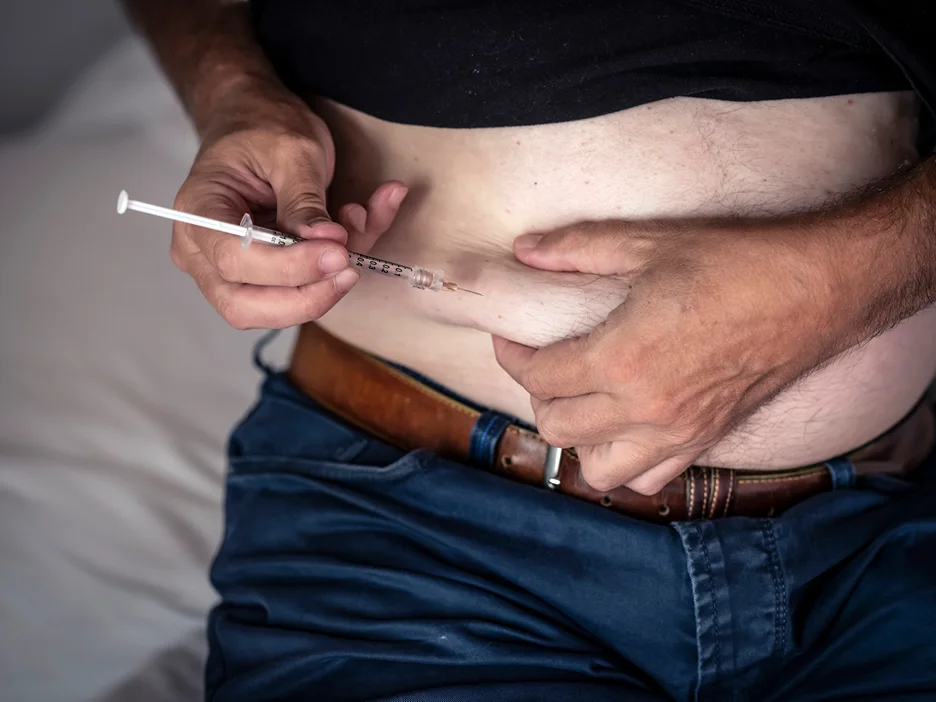
Men should immediately stop hCG if serious reactions like swelling or rash occur and see a doctor; for less serious side effects, doctors recommend gradually decreasing hCG dosage over time under medical supervision rather than abruptly stopping to avoid crashes.
- Immediately discontinue hCG if serious reactions like swelling, rash, or difficulty breathing occur, which may indicate an allergy. Promptly consult a doctor.
- Stop using hCG and see a physician if neurological symptoms arise like severe, recurring headaches or visual changes, which could reflect problematic complications.
- Discontinue hCG use and seek medical guidance if severe mood changes like depression or suicidal thoughts develop, to prevent mental health decline.
- Cease hCG if breast changes like significant enlargement, lumpiness, or nipple discharge are observed, to halt gynecomastia progression.
- Consider stopping hCG if side effects like fatigue, nausea, or swelling interfere with normal daily activities and quality of life. These may resolve after discontinuation.
- To avoid hormonal crashes, work with a doctor to slowly taper hCG doses over time when discontinuing use rather than abruptly stopping. This “weaning off” helps the body adjust.
- Report any persistent or worsening side effects after stopping hCG to a physician for evaluation. Additional medical oversight may be required.
- In summary, serious reactions require immediately ceasing hCG, while lifestyle-impairing side effects generally warrant consultation about discontinuation and weaning off the hormone safely under medical supervision.

